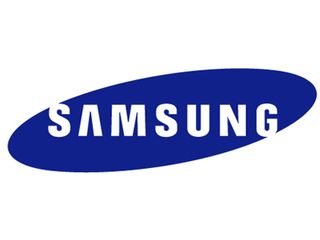Samsung's Profits Dropped 60 Percent Last Quarter As Marketing Costs Increased

Today, Samsung announced that its profits for the quarter ending in September will slip 60 percent compared to the same time period last year, with the company making only $3.8 billion total profit. This drastic decline in the company's profits will also be accompanied by a 20 percent reduction in revenue, which fell to $44 billion. Samsung's profits also failed to meet the prediction of 43 analysts who expected an average of $5.2 billion in profit.
It seems the profits fell because of Samsung's bet that more advertising would lead to more sales this cycle, especially for its high-end devices. That didn't pan out. Samsung's flagship sales dropped, and it was also forced to sell its mid-range and budget phones for a lower average price as competition put pressure on the company's prices.
Samsung hopes a new lineup of devices for the low-end will improve its situation, and the company also expects shipments to grow in the fourth quarter (possibly thanks to the launch of the Galaxy Note 4, one of Samsung's most popular flagships for the year).
As a side effect of a big reduction in flagship sales, Samsung's display revenues have dropped, too. The company tends to keep its Super AMOLED displays for its own products. If Samsung does decide to sell some Super AMOLED panels to other OEMs, the company only gives them the previous-generation technology, keeping the latest one for itself.
Samsung could at least increase the revenue and profits of its display business if it started selling its panels more freely to competitors. The same holds true for the company's Exynos division. Samsung likes to exclusively use Exynos chips inside its flagship devices, despite the fact that it also uses Qualcomm chips in some markets, too.
Samsung could create a quite profitable business selling Exynos chips to other OEMs such as HTC, Motorola or Sony, who right now have no other choice but to use Snapdragon chips. It seems Nvidia has all but forgotten about the smartphone market, so that would make Samsung the main competitor and a strong contender to Qualcomm in the high-end mobile chip business. The company could even use its 64-bit advantage at the high end to steal some market share from Qualcomm in the next few months.
It was previously reported that Samsung would be making Apple's A9 chip on its 14nm FinFET process; however, after this news about Samsung's declining profits, Apple could decide to drop Samsung to hurt the company even more, unless the contract is already signed. Samsung and TSMC seem to be neck-and-neck when fighting over which gets to make the first FinFET chips next year, but TSMC has the advantage of being "less disliked" by Apple, and it has already gotten a contract for most of the A8 chips, making the company a favorite in this competition.
Stay on the Cutting Edge
Join the experts who read Tom's Hardware for the inside track on enthusiast PC tech news — and have for over 25 years. We'll send breaking news and in-depth reviews of CPUs, GPUs, AI, maker hardware and more straight to your inbox.
Whatever the case, Samsung needs to seriously reconsider some of its strategies as a company; otherwise, there's no reason for the current trend of declining profits and revenues to end.
Follow us @tomshardware, on Facebook and on Google+.
-
TNel Wow what will they ever do with $3.8 Billion in profit?! They are basically going out of business.Reply -
InvalidError Looks like the race to the bottom shifted to second gear - marketing fluff and incremental upgrades are no longer sufficient to maintain sales against cheaper alternatives.Reply -
icemunk Wake me up when you can tell me about an American company that is building a $15 billion dollar chip-fab facility in the USA, that will employ 150,000 people... Samsung is (in South Korea). Profit is gravy. Jobs are the real king-makers.Reply -
JeanLuc IMO Samsung's flagship Galaxy phone has lost a lot of it's appeal it's sold at premium prices but it doesn't feel or look like a premium phone anymore. Competitors have caught up releasing smiler looking phones at lower prices and HTC's One M-8 is leaps and bounds ahead of the Galaxy in-terms of build quality and has a look that could certain justify a premium price tag.Reply -
atintop Samsung can no longer rely on these high-end phones like the galaxy note 3 galaxy note 4 and galaxy s5, they have to focus in the mid range and low rangeReply
Most Popular




